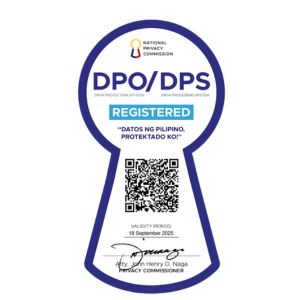Conflict happens between people or groups when they find that their goals, interests, and needs clash or are incompatible. Conflict affects how employees work and interact with other people, resulting in misunderstandings, decreased productivity, job satisfaction, and negative emotions such as shame and guilt. Most of the time, conflicts are rarely fully resolved and may flare up from time to time. Therefore, effective conflict resolution strategies are important to ensure the cooperation and performance of employees at work. Here are some strategies to help resolve conflicts in your workplace:
1. Adopt a different perspective
Looking through various perspectives, including the perspective of the person we are in conflict with, liberates us from our own biased viewpoints. We will be less likely to be aggressive or forceful. Instead, we will be able to approach conflicts in a more collaborative and problem-solving manner. This makes it easier for the other party to become more likely to be collaborative as well. Adopting a perspective-taking mindset also encourages creative, out-of-the-box solutions to seemingly irreconcilable differences. It helps us focus on the highest priority conflict issues and produce high-quality solutions that are sustainable over time and create more stable relationships.
2. Balanced focus on self and the other party/ies in conflict
Rather than focusing on our own self-interests, consider other people’s interests as well. This helps motivate us to be more collaborative in our approach to conflict. When we focus on our own needs and interests, we fail to sufficiently resolve the conflict and setting a basis for mutually satisfying interactions in the future. The same is true when we focus on other people’s needs and interests and forget our own. It is better to balance our own self-interests and the interests of other people and gently approach conflict rather than excessively avoiding or approaching it.
3. Regulate emotions
Emotion regulation refers to exercising control to manage or redirect the impact of negative emotions.
GILIN OORE, D., LEITER, M. P., & LEBLANC, D. E., 2015
Common strategies for emotion regulation include attention deployment (e.g. distracting oneself from negative emotions), reappraisal (reinterpreting or modifying a negative emotion), and suppression (inhibiting or tamping down feelings). Regulating our emotions helps us contain the toxicity of negative emotions and reduces feelings of anger and aggression in escalated, emotional, or stubborn conflicts. It helps us focus on the positive features of the relationship and aids communication or conversation about the unresolved conflict. It allows us to learn from the conflict without focusing on and exacerbating negative relationship issues.
4. Apologize sincerely
It is difficult to admit that we are wrong. But for the relationship to move forward, it is best to swallow our pride and apologize sincerely for our wrongdoings. A sincere apology helps lessen the negative emotions of the other party and makes it easier for them to extend forgiveness and be more willing to cooperate. If our apology seems forced or insincere, it may have the opposite effect. It is best to go through the previous conflict resolutions strategies (adopting a different perspective, balancing self and other interests, and regulating emotions) to help us take a look at what happened, what we have done, and be sincere in our apology.
5. Have a positive attitude towards forgiveness
How we perceive a situation determines our response to a situation. Having a positive attitude towards forgiveness helps us continue the relationship even after a conflict happens. Forgiveness helps us repair damaged relationships with other people and overcome the devastating thoughts and emotions that result from the conflict. A conflict between party/ies will not be fully resolved if there is no actual forgiveness between them.
PowerVision provides workplace counseling services or Employee Assistance Programs (EAP) to companies in the Philippines. These services include phone counseling and face-to-face sessions to help employees overcome problems that might be affecting their performance at work. This may include conflicts with other people in the workplace. Depending on the package, employees can also avail group counseling or relationship counseling with workmates. Contact us for more information!
References:
- Ayoko, O. B. (2016). “Workplace conflict and willingness to cooperate.” International Journal of Conflict Management, 27(2), 172–198.doi:10.1108/ijcma-12-2014-0092
- Gilin Oore, D., Leiter, M. P., & LeBlanc, D. E. (2015). “Individual and organizational factors promoting successful responses to workplace conflict.” Canadian Psychology/Psychologie Canadienne, 56(3), 301–310. doi:10.1037/cap0000032
- Prause, D., & Mujtaba, B. G. (2015). “Conflict Management Practices for Diverse Workplaces.” Journal of Business Studies Quarterly, 6(3), 13-22. https://search.proquest.com/openview/a5b3884d6973bc811daab8221938d63b/1?pq-origsite=gscholar&cbl=1056382











